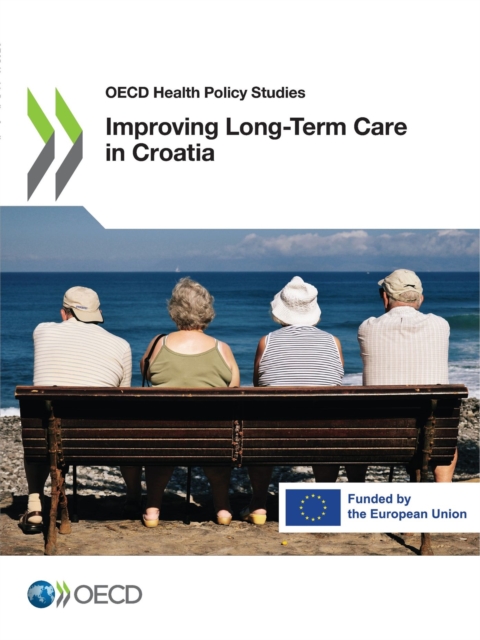
OECD Health Policy Studies Improving Long-Term Care in Croatia PDF
by OECD
Description
<img src="https://assets.oecdcode.org/ilibraryres/img/eufunded-banner3.png" class="img-responsive" style="width:80%; padding-bottom:5px;" alt="EU Funded Note"/>
The demand for help with daily activities – so-called long-term care – is set to increase in Croatia. The population is ageing at a faster rate than the EU average, and by 2050, about one-third of the population is projected to be aged 65 years and over. In addition, with one of the highest poverty rates among older people in EU countries, at 30%, most older people cannot afford long-term care without public support. However, the long-term care system is both fragmented, with multiple benefits and services across different providers, and underfunded with public expenditure among the lowest across EU countries. As a result, long-term care remains unaffordable for most people even after receiving public support, leading to gaps in access, inequities, and a strong reliance on relatives to provide the bulk of long-term care. This report suggests avenues to improve access and equity of long-term care and proposes policy recommendations to enhance the support for family carers.
Information
-
Download - Immediately Available
- Format:PDF
- Pages:60 pages
- Publisher:OECD Publishing
- Publication Date:28/07/2023
- Category:
- ISBN:9789264394490
Information
-
Download - Immediately Available
- Format:PDF
- Pages:60 pages
- Publisher:OECD Publishing
- Publication Date:28/07/2023
- Category:
- ISBN:9789264394490






